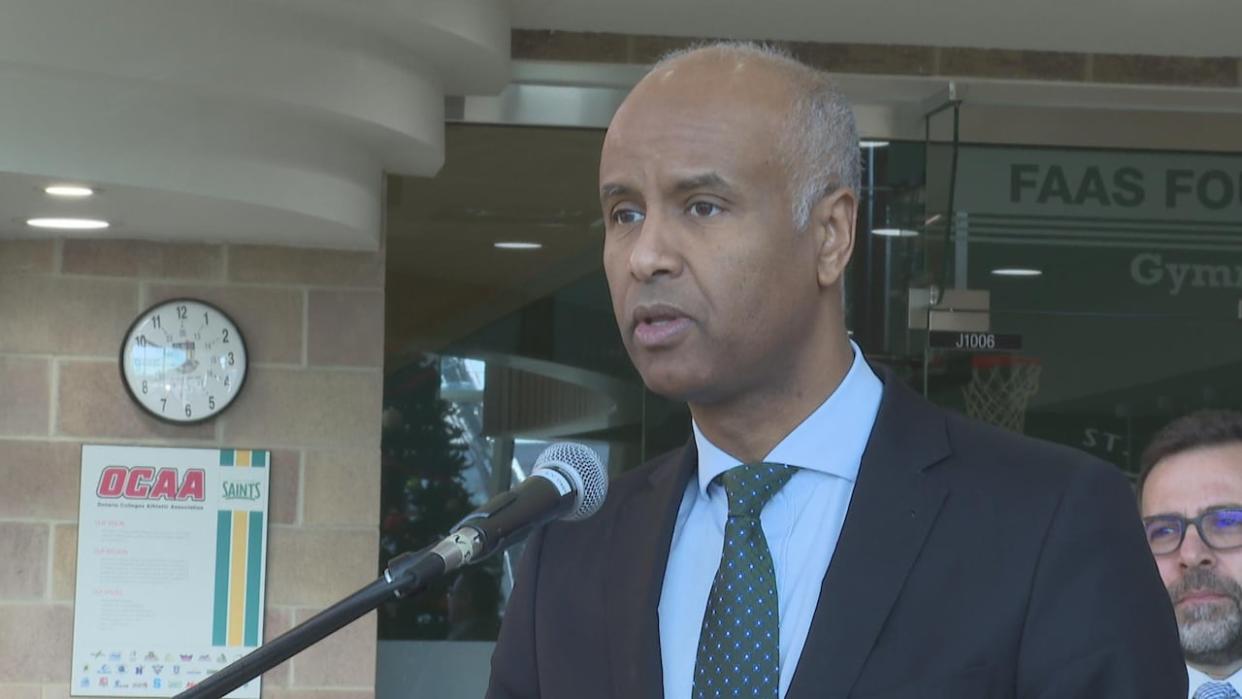'Deepening unemployment crisis' among Iraqi youth prompts $9.9M federal investment

Nearly $10 million in federal spending to support youth in Iraq will ultimately help Canada, International Development Minister Ahmed Hussen says, because the investment supports stability in the region overall.
"Our biggest focus in our Middle East strategy is Iraq ... and the way Iraq goes is the way the rest of the region will go," he said.
Hussen made the announcement of $9.9 million in funding in Windsor, Ont., on Wednesday at St. Clair College.
The new funding will help pay for vocational and technical training for five years through a partnership with two groups, the World University Service of Canada and the Canadian Leaders in International Consulting. Both organizations have offices in Ottawa.
Since 2016, the federal government has spent $4.7 billion on its Middle East strategy, Hussen said. With that money, the government is tackling extremism but also building "post-conflict strategies," he said.
"Right now, for example, Iraqi youth are suffering from deepening unemployment crisis that undermines the economic security and this is directly linked to the previous conflict in Iraq," he said.
Windsor-Tecumseh Liberal MP Irek Kusmierczyk said the announcement was made in Windsor in recognition of the city's big Iraqi community, the college's efforts as a leader in education and Windsor's role in international trade.
Tania Jordan is the deputy director of program management and operations with the World University Service of Canada.
She said that about 700,000 youth enter Iraq's employment market every year, but finding good jobs is a challenge.
"The national youth unemployment rate is three time that of adults and worse for young women, who face extra challenges due to their gender," she said.
"There's still much more that training institutions and employers can do to ensure young people can reach their full potential and with our partners, we want to help them get there."


